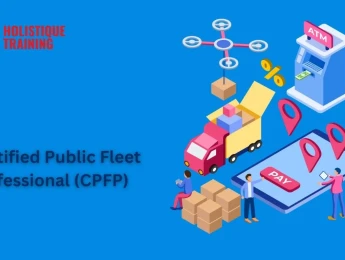For an organisation to be successful, it is crucial that it maintains strong management. Without this, business functions may suffer greatly, and productivity will significantly fall.
The role of an operations supervisor is to guarantee that different areas of an organisation are functioning correctly. They are responsible for ensuring employees are performing to standard, maintaining a budget, reducing costs, and creating action plans for continuous improvement.
While the specific responsibilities may vary depending on an organisation's particular industry or style, the competencies required are universal overall. Operations supervisors must have highly developed communication skills to ensure there are no miscommunications between their instructions, employees’ needs, and upper management's desires. They should also be knowledgeable in measuring performance, such as utilising KPIs, and competent at coaching those who require it.
Not only is there a focus on business needs, but they are also responsible for maintaining a healthy working environment. This needs to take into account the physical risks of the workplace and the emotional needs of employees. Resolving conflict, providing incentives and rewards, and building positive relationships are all vital to keeping a safe and healthy environment.
Upon completion of this course, participants will be able to:
- Understand the importance of time management.
- Maintain in-depth records of production and performance.
- Create action plans to improve the productivity of functions and employees.
- Utilise innovation to reduce costs.
- Monitor records of KPIs across different functions.
- Provide constructive coaching to those underperforming.
- Balance business needs with employee welfare.
- Develop strong communication skills.
- Assess employee personalities and group dynamics and diffuse conflict.
- Motivate and encourage employees to perform better.
This course is designed for anyone appointed to an operation supervisory position or those in a similar role who aspire to develop their skills. It would be most beneficial for:
- Operations Managers
- Operations Supervisors
- Branch/Department Managers
- Sales/Marketing Supervisors
- Finance Managers
- Team Leaders
- Regional Managers
- Site Supervisors
This course uses a variety of adult learning styles to aid full understanding and comprehension. Participants will review real-world case studies of established operation supervisors to highlight important competencies they possess that may have led to their success.
They will be provided with all the necessary tools to carry out the learning exercises. Participants will also participate in presentations and group activities alongside the case studies. This will allow ample opportunities for them to gain a full and comprehensive understanding of the taught content and demonstrate their new skills regarding their respective roles.
Day 5 of each course is reserved for a Q&A session, which may occur off-site. For 10-day courses, this also applies to day 10
Section 1: Introduction to Operation Supervisors
- The role of an operation supervisor within an organisation.
- The areas that the operation supervisor covers.
- Reviewing the traits and characteristics that lead to successful leadership.
- Types of leadership and communication styles.
- The responsibilities of managing budget, employee performance, and business production.
Section 2: Operational Success Factors
- Accurately assessing risks in all areas and creating risk management plans.
- Coping well under pressure and making quick decisions to resolve issues as they occur.
- Utilising innovation to enact change in business processes.
- Setting goals, and objectives and creating detailed action plans for continuous improvement.
- Inspiring employees to develop and increase work output.
Section 3: Managing Employees
- Understanding the dynamics of a diverse workforce.
- Assessing employees’ personal motivations and implementing goals and rewards personalised to them.
- Analysing potential and addressing potential problems before they impact productivity.
- Identifying conflict areas and using balanced, empathic language and discipline to resolve it.
- Delegating tasks accordingly based on employees’ strengths.
- Providing adequate training, coaching, and mentoring to those who are underperforming.
- The importance of developing positive relationships within the workplace.
- Effective time management.
Section 4: Managing Assets
- Monitoring finance records to assess budget.
- Utilise innovation techniques to develop ways of reducing costs.
- Using KPIs to measure performance.
- Managing different functions to ensure all is working as efficiently as possible.
- The process of waste reduction to reduce costs and better maintain the budget.
Section 5: Health and Safety
- The vitality of creating a safe and positive working environment.
- Ensuring the organisation is following all local health and safety procedures.
- Strategies to establish a ‘no blame culture.’
- Accounting for possible implications of health and safety when implementing innovation action plans.
Upon successful completion of this training course, delegates will be awarded a Holistique Training Certificate of Completion. For those who attend and complete the online training course, a Holistique Training e-Certificate will be provided.
Holistique Training Certificates are accredited by the British Assessment Council (BAC) and The CPD Certification Service (CPD), and are certified under ISO 9001, ISO 21001, and ISO 29993 standards.
CPD credits for this course are granted by our Certificates and will be reflected on the Holistique Training Certificate of Completion. In accordance with the standards of The CPD Certification Service, one CPD credit is awarded per hour of course attendance. A maximum of 50 CPD credits can be claimed for any single course we currently offer.
- Course Code MG2-167
- Course Format Classroom, Online,
- Duration 5 days














